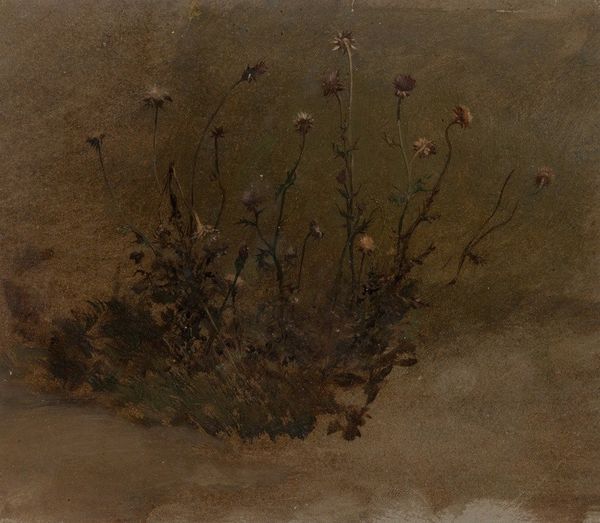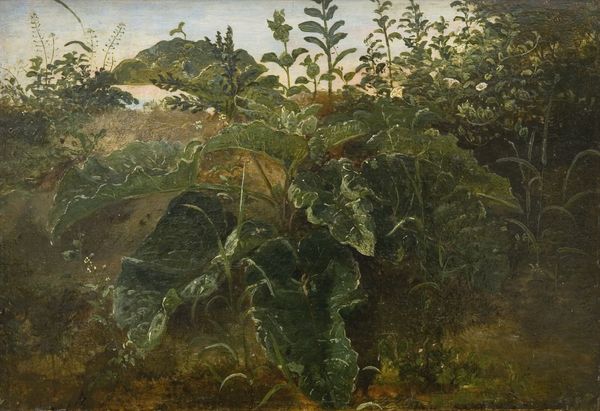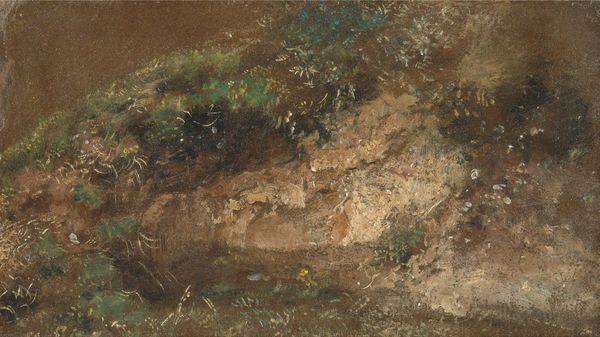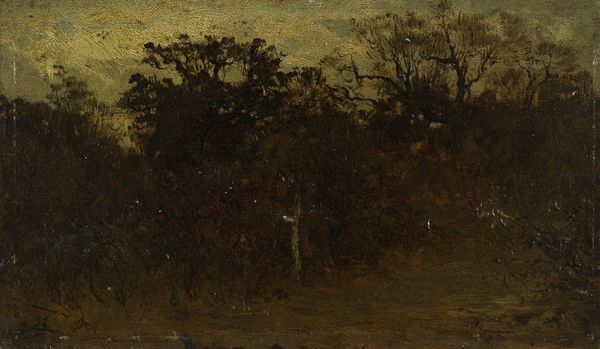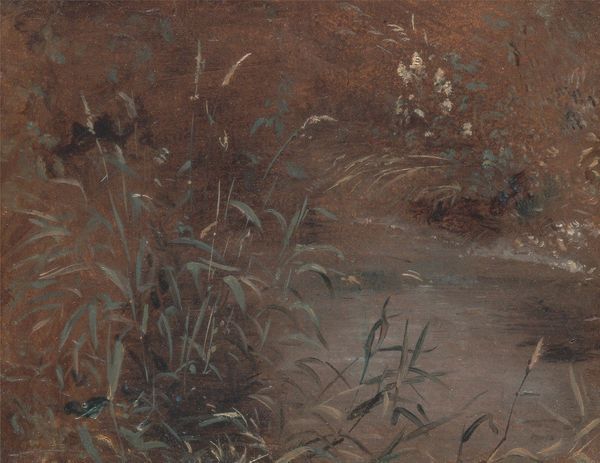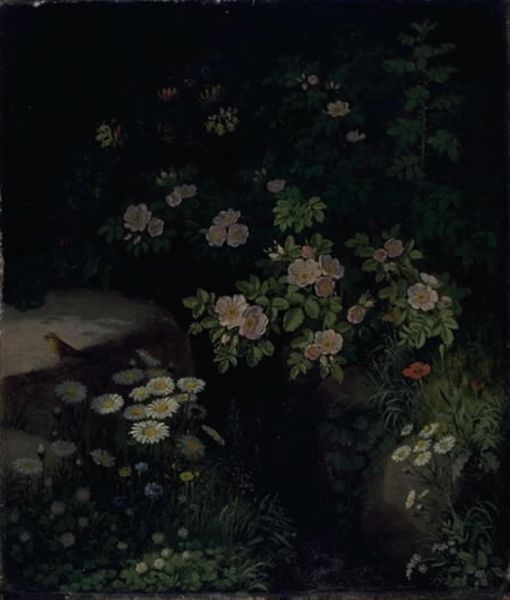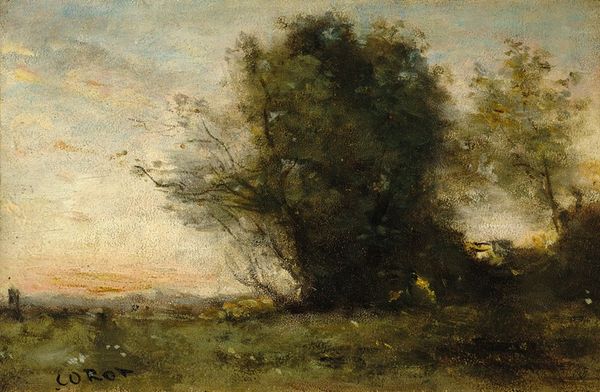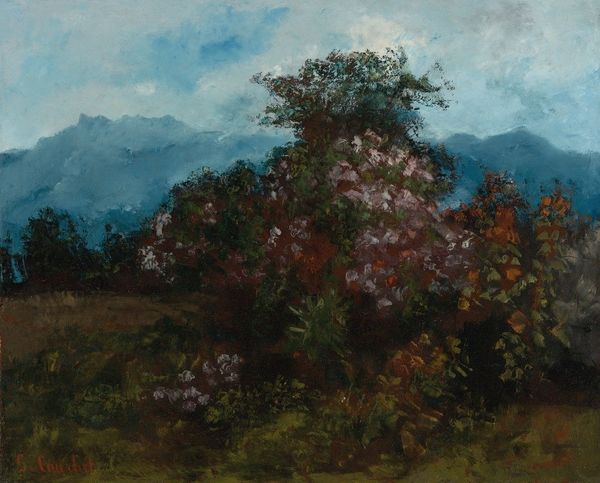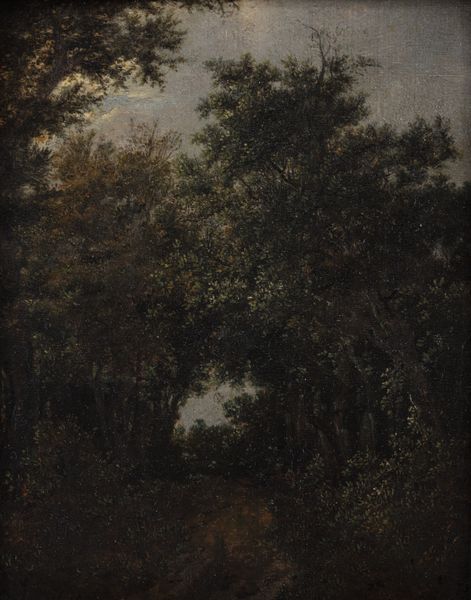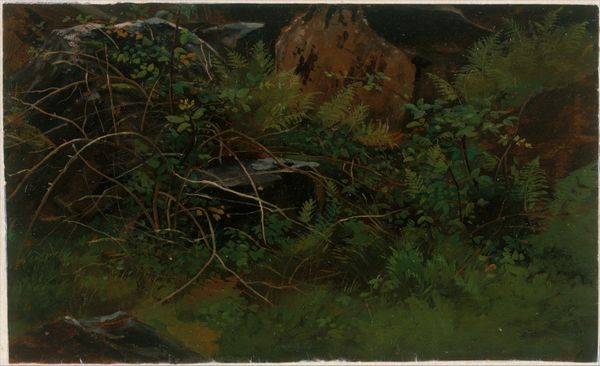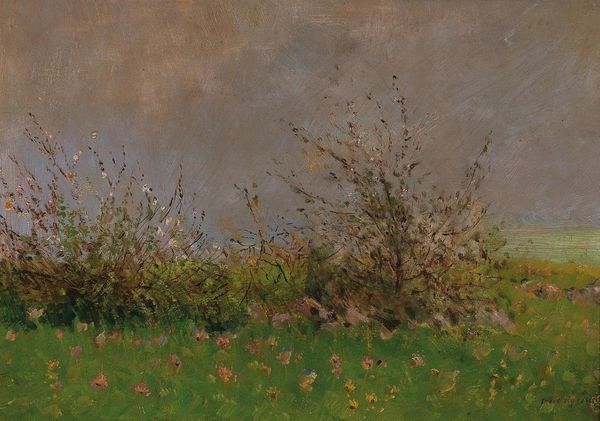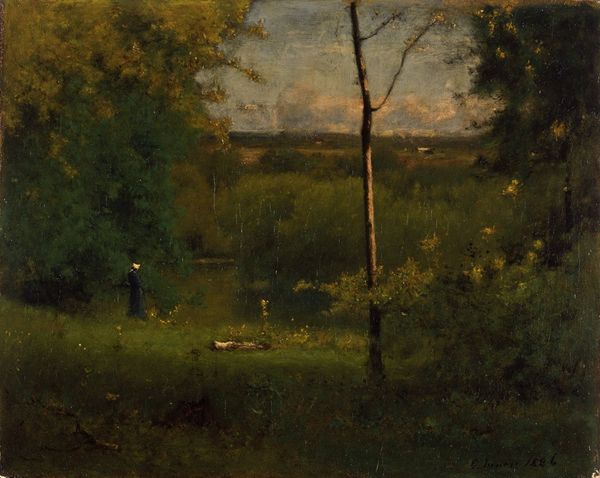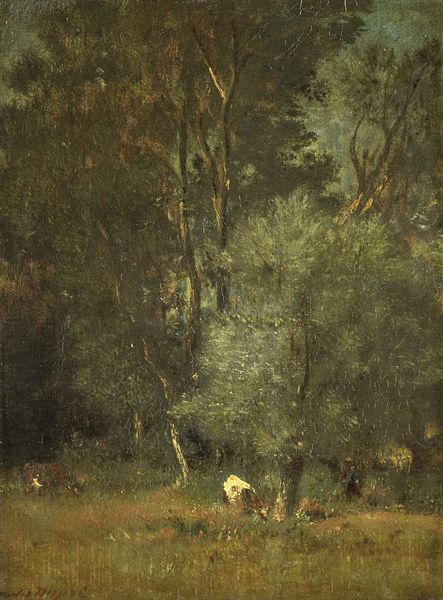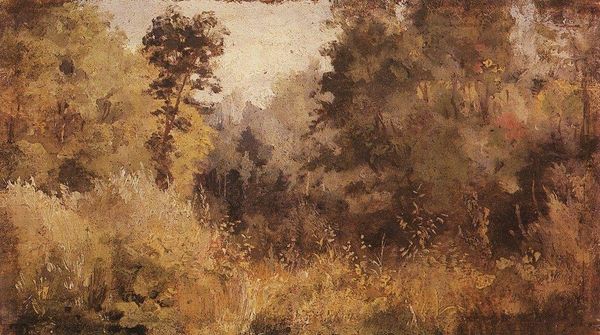
plein-air, oil-paint
#
plein-air
#
oil-paint
#
landscape
#
impressionist landscape
#
romanticism
#
naturalism
Copyright: Public Domain: Artvee
Carl Spitzweg painted "Stauden", this evocative piece, in the 19th century. Here, Spitzweg captures the vibrant, yet humble, flora of an uncultivated landscape. Note the dominance of the Mullein plant, its tall, erect stalk reaching skyward. Since antiquity, this plant has been associated with protection and courage. In ancient Greece, it was believed to ward off evil spirits. The single stalk evokes images of candles and lamps and, therefore, divine light. Such iconography reminds me of the classical figure of the "torchbearer", seen in ancient Roman reliefs. This figure doesn't merely carry light; it embodies the transmission of knowledge, courage, and hope across generations. In Spitzweg's painting, the Mullein serves a similar symbolic purpose. Consider how our collective memory imbues these symbols with power. Subconsciously, we recognize the emotional weight of light piercing through darkness. This recognition engages us on a level that transcends mere observation. It's a powerful force that connects us to our cultural past. And so the symbolic journey continues, with motifs resurfacing, evolving, and taking on new meanings in different contexts.
Comments
No comments
Be the first to comment and join the conversation on the ultimate creative platform.
